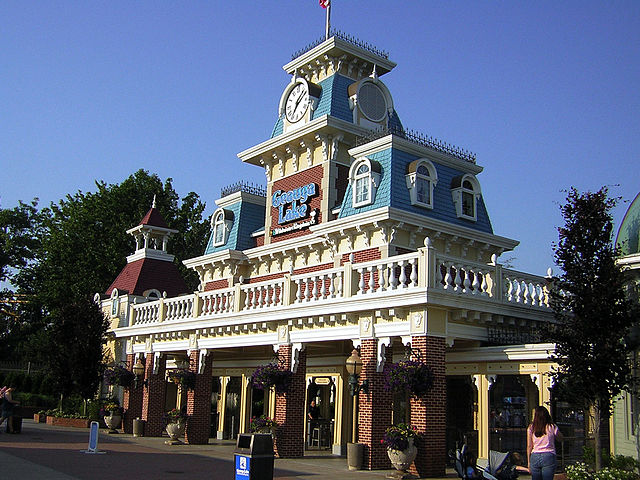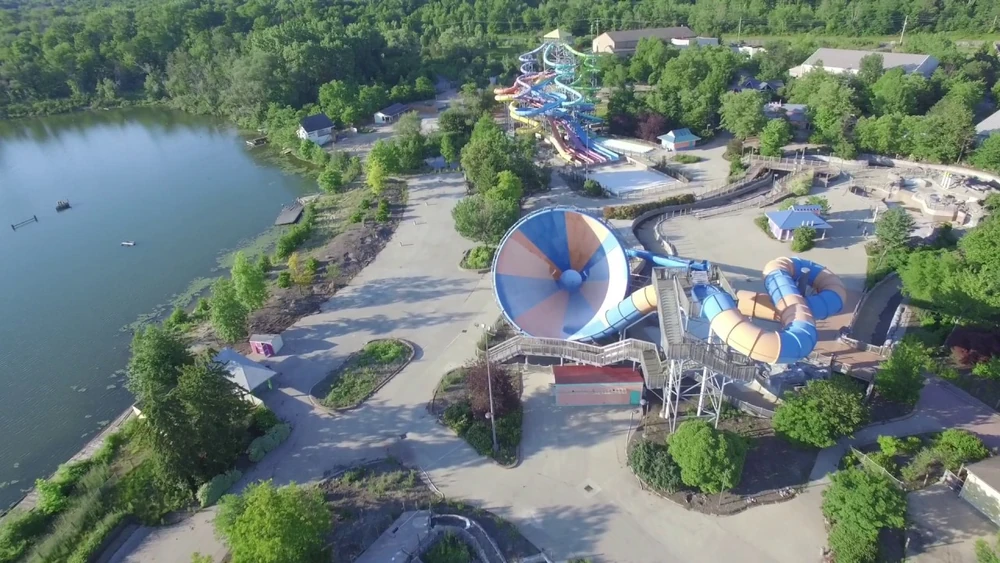Was Cedar Fair truly to blame?
After Cedar Fair’s decision to close Geauga Lake, many theme park enthusiasts immediately placed the blame on Cedar Fair. But was Cedar Fair truly at fault?
First, let’s examine the Six Flags park that was up for sale. Six Flags Worlds of Adventure wasn’t operable, nor profitable, in its 2003 state, whether Cedar Fair got involved or not. Six Flags, which was going through bankruptcy and selling off theme parks/assets around the globe, including all of its European parks, was so desperate that they sold the entire Six Flags Worlds of Adventure complex for $145 million, an offer that was almost too good to refuse.


Especially considering that the SeaWorld Ohio portion of the park (pre-investments by Six Flags) cost Six Flags $110 million (considered a bargain at the time). The enhancements to Six Flags Ohio cost Six Flags around $60 million. Cedar Fair acquired a failing amusement complex that was too large to manage in its current condition.
The general consensus was that Cedar Fair purchased the park to eradicate competition for Cedar Point. However, the amusement park was failing miserably, and Cedar Fair took a financial risk to operate it. Was it, at that time, a genuine competitor to Cedar Point? It was obvious from a distance that Six Flags Worlds of Adventure was performing poorly, as attendance was extremely low in 2003.
In order for Geauga Lake to survive and become profitable, Cedar Fair had no alternative but to downsize the operation after acquiring it. Geauga Lake was only profitable in the past when it was on a smaller scale and concentrated on families; consequently, Cedar Fair prioritized a shift to a “family” park.

When referring to the rides that Cedar Fair chose to relocate, it was a strategy to reduce the park’s size and utilize comparatively new attractions as expansions at other parks.
Geauga Lake’s ultimate fate may have occurred suddenly, but it was also influenced by Cedar Fair’s acquisition of five new Paramount parks, rapidly expanding the chain’s park collection. At this point, they shifted their attention to managing five additional parks, and Geauga Lake was likely the most difficult and risky undertaking to attempt to revitalize.
We believe Cedar Fair’s decisions were logical, and when they acquired Geauga Lake, they took a risk that ultimately was not worthwhile. What do you think? Let us know in the comments!
Curious which former Geauga Lake roller coasters and rides you may have ridden after their relocations? Don’t forget to listen to our Coaster Kings Radio episode about Geauga Lake, where we go into even more detail:


